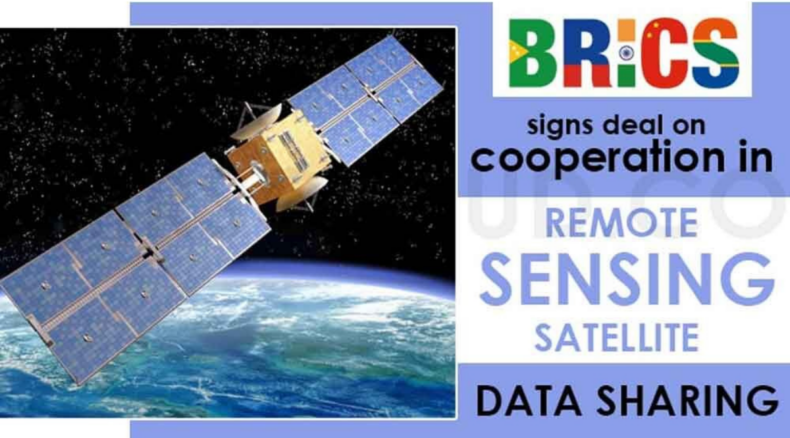BRICS members launched the Joint Committee on Space Cooperation during a virtual meeting of top officials of BRICS space agencies on Wednesday. Members of the BRICS bloc opened a new front in the remote sensing satellite observation and data sharing fields through the Joint Committee on Space Cooperation. The committee was launched during a virtual meeting of top officials of BRICS space agencies on Wednesday. BRICS, which stands for Brazil, Russia, India, China, and South Africa, launched the Joint Committee under the BRICS Remote Sensing Satellite Constellation agreement made in August last year. Zhang Kejian, head of the China National Space Administration (CNSA), said in CNSA’s official statement that the committee will enhance cooperation on the satellite constellation to better serve economic and social development in member countries.

Two Indian Satellites to be the part of this constellation
In August 2021, the Indian Space Research Organisation (ISRO) entered into an agreement with other BRICS space agencies to develop a virtual remote sensing constellation. In its official statement, ISRO had said that the constellation will “contribute in strengthening multilateral cooperation among BRICS space agencies in meeting the challenges faced by mankind, such as global climate change, major disasters and environmental protection”. The constellation consists of six existing satellites, two of which- Resourcesat-2 and 2A- are contributions of ISRO. Other satellites in the constellation are Gaofen-6 and Ziyuan III 02, both developed by China, CBERS-4, jointly developed by Brazil and China, and the Kanopus-V type developed by Russia. Ahead of the launch of Resourcesat-2 in 2016, ISRO had said that it is extremely useful for monitoring vegetation and water resources and also has applications in mapping and monitoring land resources, rural and urban development plans, crop production estimation, forest cover mapping and disaster management support.

Further moves
Speaking at the joint commission’s first meeting via video, Zhang Kejian, head of the China National Space Administration (CNSA), said on Wednesday that it will guide the remote sensing sharing mechanism to better help the socioeconomic development of the Brics countries and meet common challenges, such as climate change, disaster relief and environmental protection.
A forward movement on the mechanism can be expected at the upcoming Brics leaders’ summit to be held in late June. The agreement will help accelerate cooperation between the BRICS countries in the peaceful use of outer space with use of data and applications across an array of sectors such as research on global climate change, agriculture and food security, disaster management and water resource management, amongst others,” said Sanjay Bhattacharya, Secretary at the Ministry of External Affairs (MEA) and India’s Sherpa for the BRICS summit, which Prime Minister Narendra Modi would host next month.
SOCIAL MEDIA HEADING
- Indian satellites part of virtual constellation
Read More – Beijing proposed BRICS expansion, but agreed on to laid down the criteria first













